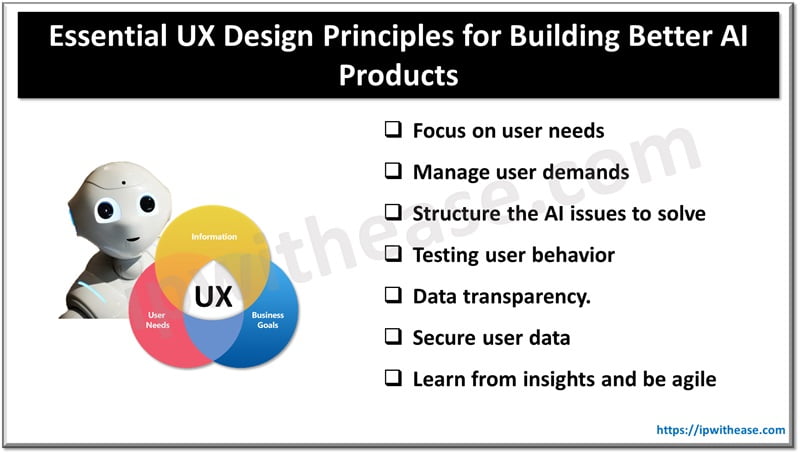Table of Contents
Artificial intelligence (AI) has progressed quickly from a trend to a phenomenon that is transforming businesses in every sector and corner of the world. AI is no longer the sole domain of tech giants; it’s now an essential component of business strategies across healthcare, finance, retail, education, and beyond — powering process automation and enabling intelligent decision making.
Given the skyrocketing demand for AI professionals throughout the world, 2026 is said to be one of the most critical years to undergo an artificial intelligence course. If you are a beginner seeking to launch your career or a professional looking to advance, proper training will enable you to gain the competitive edge and succeed in this rapidly growing field.
In this post, we plan to look at the key basics you’ll learn in AI-related courses, what career paths are open to you, and how best to get started.
Why Study Artificial Intelligence in 2026?
Artificial intelligence is no longer a nice-to-have skill — it is fast transforming into a must-know alpha skill for 21st-century jobs. So why are professionals looking more to structured AI courses?
- Soaring Demand Across Industries: AI and machine learning experts feature in the top 10 fastest-growing job roles according to a World Economic Forum report.
- Good Salary Packages: The pay scale of AI engineers, data scientists, and ML experts is often in seven figures and above from global markets.
- Bang-On Careers: After completing an AI course, you can work in various employment positions in research and development, analytics, robotics (science vs. robot is a big topic), natural language processing, or computer vision.
- Future-Proof Skills: AI will continue to develop, and professionals with AI knowledge will never go out of fashion.
What is in an AI Program?
There are many skills that a full AI learning program should provide students. Though the course curriculum may vary between educators, these topics are generally covered in most AI and ML courses:
- Maths for AI: Study of linear algebra, probability, and statistics, which underpin algorithms.
- Programming Skills: Python, R, and their associated frameworks, including TensorFlow, PyTorch, and scikit-learn.
- Machine Learning Models: Types of models include supervised, unsupervised, and reinforcement learning.
- Deep Learning: Neural networks, convolutional networks (CNNs), recurrent networks (RNNs), and transformers.
- Natural Language Processing (NLP): Text mining, sentiment analysis, and big language models.
- Computer Vision: Image recognition, object detection, and video analytics.
- Generative AI: Training models to create text, images, and audio with the latest in leading-edge tools.
- Ethics and Responsible AI: Exploring fairness, transparency, and governance in AI applications.
- Applications: Capstone projects, case studies, and real-world problem solving.
These skills empower students not just to learn about AI, but also to work with it professionally.
Related: Types of AI Algorithms and how AI Algorithms work
Job Prospects After an Artificial Intelligence Course
AI is one of the most flexible career paths, offering both technical and strategic roles. Below are some of the best career options for graduates of an artificial intelligence program in 2026:
- AI Engineer: Define and deploy AI models to address business problems, focusing on machine learning pipelines, model training, and large-scale deployment.
- Data Scientist: Analyse big data sets, find trends, and construct models that predict future business outcomes. Often use AI with analytics.
- Machine Learning Engineer: Design algorithms that enable machines to learn from data, combining software engineering and data science.
- NLP Specialist: Develop systems that comprehend or generate language, especially as chatbots, voice assistants, and generative AI like OpenAI’s GPT models become more prevalent.
- Computer Vision Engineer: Work on applications such as self-driving cars, healthcare imaging, facial recognition, and more.
- AI Product Manager: Bridge the gap between business and AI by leading the development of AI-enabled products and platforms.
- Research Scientist: Focus on academic or advanced industry research, developing cutting-edge AI technologies in deep learning, generative AI, and robotics.
Best Artificial Intelligence Courses in 2026
If you’re thinking about upskilling, here are some of the best programs to consider this year:
- Artificial Intelligence & Machine Learning Bootcamp – Simplilearn (in collaboration with Caltech CTME)
- Blended learning approach with concurrent and self-paced content.
- Covers machine learning, deep learning, and related AI projects.
- Endorsed by Caltech.
- Certified in Artificial Intelligence – edX (Columbia University)
- Challenging academics at a top-ranking university.
- Specialises in ML, robotics, and deep learning applications.
- Ideal for students seeking research-based instruction.
- Specialisation in Machine Learning – Coursera (Stanford University, Andrew Ng)
- Covers supervised, unsupervised, and advanced ML methods.
- Great entry-level course for beginners.
- Led by Andrew Ng, a respected figure in AI.
- Generative AI Specialisation – Coursera (DeepLearning.AI)
- Highlights LLMs, prompt engineering, and generative AI tools.
- Hands-on experience with OpenAI, Hugging Face, and multimodal systems.
- Ideal for those looking to specialise in cutting-edge AI applications.
- AI for Everyone – Coursera
- ITS458 – Introductory course for managers, consultants, and business leaders (non-technical).
- Focuses on the impact of AI on organisations and industries.
- Perfect for decision-makers aiming to get strategic with AI.
AI ML Courses vs Specialised AI Training
There are two main directions in AI education:
- AI ML Courses: Offer a general overview of all main aspects of AI; ideal for beginners and professionals alike.
- Specialist AI Programs: Concentrate on in-depth knowledge in a sub-field, such as generative AI, reinforcement learning, or robotics. Best for professionals who know their career path.
What is a Good Starting Point?
A practical answer is to start with foundational artificial intelligence courses and branch out once you know which career path or AI branch interests you the most.
How to Decide and Choose the Right AI Course
Consider these factors before signing up:
- Career Goals: Technical (AI engineer, ML developer) or strategic (AI product manager)?
- Study Style: Academic intensity, industry work, or self-paced?
- Credential Recognition: Programs associated with reputable universities or enterprises.
- Real-World Applications: Hands-on projects, labs, and assignments.
- Time Commitment: Long-term, short-term, or part-time, based on your schedule.
AI Jobs Beyond 2026 – What Does the Future Hold?
The adoption of AI will accelerate over the next decade. By 2030, AI is expected to add trillions to the global economy — impacting not just technology, but also arts, education, and public policy.
Professionals trained in AI and ML courses will be able to design, deploy, and manage intelligent systems that drive business innovation. New skills such as generative AI and ethical governance will continue to redefine job categories.
Conclusion
Artificial Intelligence is not only a skill set to master but a demand for innovation in today’s industries. The best way to prepare for an AI-centric world in 2026 is to enrol in a formal artificial intelligence course that delivers practical skills and career-ready training.
Whether you opt for a full AI ML course, a generative AI-focused track, or a business-oriented non-technical program, the opportunities are vast. With high demand, lucrative pay, and career flexibility, AI remains one of the most promising fields of this decade.
ABOUT THE AUTHOR
IPwithease is aimed at sharing knowledge across varied domains like Network, Security, Virtualization, Software, Wireless, etc.



